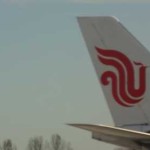By Roy Graff, ChinaContact, please see also www.chinacontact.org.
I am asking this question because since I started advising on market entry to China, I have come across many examples of destinations throwing money at the Chinese market with useless campaigns and ineffective marketing. So many new destinations became ‘approved destination’ (ADS) in the last few years that there was a scramble to prepare Chinese language information, Chinese brochures, websites and go on public and trade road shows in China. Inevitably a host of agencies and companies started offering their services and charging rates that were decided by how much the client was willing to pay rather than how much the service was actually worth. In a free market, this takes time to stabilise but in these cases we are talking about public money coming from tax payers. I think that the private sector should hold officials accountable for how they spend their budget, especially in a new volatile and sensitive market like China.
It is obvious that China cannot be tackled like any other developed tourist economy. But foreignness of culture and language make it especially susceptible to hasty and uninformed decisions by tourism promotion officials. The most recent example comes from Anguilla, a tiny Caribbean island.
The Chief Minister and Minister of Finance and Tourism of Anguilla went to Britain and signed an agreement with a UK based marketing company for tourism promotion in China. Opponents of the government seemed to think that this meant an agreement to bring Chinese businesses to Anguilla to open shops and compete with local business. A simple misunderstanding which was clarified by the officials. What I took issue with is the fact that Anguilla officials think they can expect to see a sizeable number of Chinese tourists visiting their island as a result of having some information in Chinese on the internet. The supplier mentioned in the article provided them with a Chinese language web presence for GBP 5,500 (USD $9,200) per year but without their own .cn domain name. This is probably 3 times as much as they should be paying for such a service.
So many countries that are new destinations for the Chinese have no clue about how to market themselves and they often act in a rash way without investigating the market properly and seeing if their expectations are realistic. They should be researching the online and offline marketing channels to understand how search engines work in China, how different demographics use the internet and how to engage the travel trade. This may take more effort than just getting some marketing blurb translated, but surely those paying want a job done properly? It is easy to lose control of your marketing if you don’t understand the market for yourself. China is not easy, granted. But it is not an alien culture and you can know enough to make informed, rational decisions.






